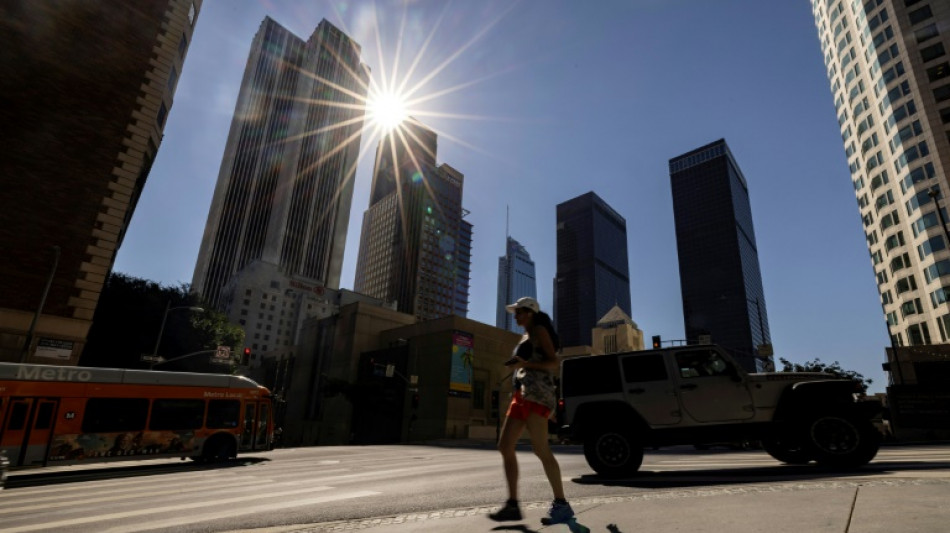

Dangerous heat wave intensifies in US Southwest
A punishing heat wave gripping California and parts of the southwestern United States was intensifying Thursday as forecasters warned of dangerous temperatures.
An excessive heat warning has been extended into the weekend, with experts flagging a heightened risk of wildfires as the mercury soars and humidity levels plunge.
"All systems go for what will be a dangerously hot stretch of weather through the weekend, and in some areas continuing into next week," the National Weather Service (NWS) said.
"Do not do any hiking or other physical activities except very early in the day and even then use extreme caution and stay well-hydrated."
Temperatures in and around Los Angeles, the second biggest city in the United States, were on the rise.
Forecasters said the hottest parts of town could reach a sweltering 118 Fahrenheit (48 Celsius), while 110 would not be uncommon throughout the city on Friday.
Nighttime temperatures were not expected to offer much relief, dropping only as low as the 90s, forecasters said.
The NWS also issued a "red flag warning" for rural regions around Los Angeles, including in the Santa Monica Mountains where the heat and low humidity were combining to heighten the risk of wildfire.
While the flame-fanning winds that often come in September were not expected, "there is a history of large fires with similar weather conditions during this time of the year."
High temperatures in the US Southwest -- much of which is desert -- are not unusual at this time of year.
But scientists say human-caused global warming is pushing norms higher, and creating more unstable weather patterns.
M.Sutherland--NG



